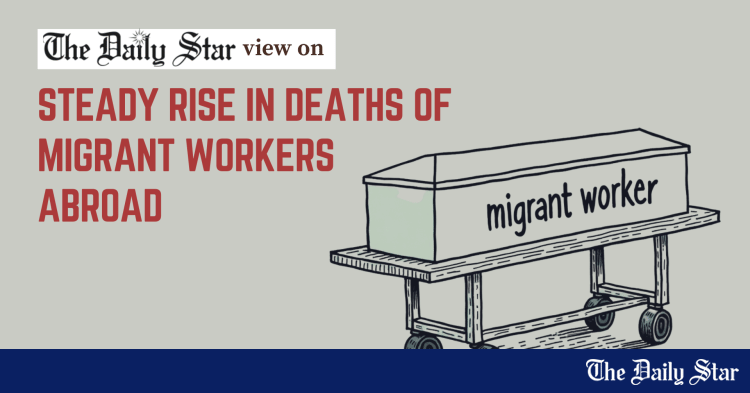Why fewer workers going to Italy despite potential job scope
Mohiuddin Dhaka
Published: 10 May 2025, 22: 44
Although among European countries, Italy is considered one of the most promising labour markets, many workers from Bangladesh are struggling to secure jobs there due to a lack of language skills and technical knowledge.
There have also been allegations of fake job offers, prompting the Italian government to impose strict visa requirements. As a result, despite having significant job opportunities, the number of Bangladeshi workers going to Italy remains low.
After a seven-year hiatus, a bilateral agreement between Bangladesh and Italy was signed in 2020 to facilitate worker recruitment. Workers began traveling again in 2021. According to the Bureau of Manpower, Employment and Training (BMET), 653 workers went to Italy in 2021, rising to 7,594 in 2022, and 16,879 in 2023. But in 2024, the number dropped sharply to just 1,164, with 1,246 more in the first four months of 2025.
Officials say that even after receiving job offers, visa processing at the Italian embassy in Dhaka takes a long time, sometimes over a year. After complaints from applicants about their passports being withheld for extended periods, many were returned. However, once job verification is complete, the passports must be resubmitted. Delays in legal migration may encourage some to try entering Italy illegally via the Mediterranean Sea.
A man from Barishal, using the pseudonym Shahzada, told Prothom Alo that he received a job offer as a construction worker in Italy on 28 February 2023. He submitted his passport in July, but six months later, in December, it was returned without a visa. Now he’s waiting for an email from the embassy. Another individual, who received his job offer on 2 February 2023, is also still waiting for a visa.
Recruiting agencies involved in sending workers to Italy say that Bangladesh’s overseas labour market is still mostly Middle East-focused, with only a few Asian countries as alternatives. Complications in the process hinder labour migration to these places, even though Europe offers opportunities for hundreds of thousands of workers, with better wages and more remittances. But this potential is being overlooked by successive governments. Agencies are urging the Bangladeshi and Italian governments to streamline the visa process.
Arifur Rahman, President of the Recruiting Agencies Association of Bangladesh for Europe and Developed Countries, told Prothom Alo that the Bangladeshi government should negotiate with Italy to resolve the visa bottleneck and create a roadmap for sending workers across Europe. This would include language and technical skills training, followed by matching workers with quality employers through labour wings at embassies.
Skills and language training are critical
The Ital-Bangla Coordination and Development Association, established in 1992 to support Bangladeshi migrants in Italy, said Bangladeshis started arriving in Italy in the 1980s, often through irregular means. In 1987, undocumented workers received their first legalisation opportunity. After several rounds of regularisation, Italy included Bangladesh in its official foreign worker quota in 2003, leading to a rise in Bangladeshi workers. By 2015, the Bangladeshi migrant population surpassed 200,000.
However, in 2011, Italy wanted to deport some undocumented Bangladeshis but couldn’t due to the lack of a bilateral agreement. In 2012, Italy revoked Bangladesh’s quota privileges, and in 2013, formal labour migration from Bangladesh to Italy halted. This led to an increase in illegal migration.
According to Ital-Bangla sources, in 2020, a memorandum of understanding on migration was signed. But from 2020 to 2023, about 80 per cent of workers who entered Italy with work visas eventually became undocumented. In 2023 alone, around 100,000 workers faced visa complications, and some even had their passports returned without visas. Recently, affected workers held protests in the Kakrail area of Dhaka.
Experts say Italian is the only language used in the workplace, making jobs difficult for those who don’t speak it. Many unskilled workers pay large sums for job contracts, but without basic technical skills, they struggle.
Legally, a foreign worker must remain in the country of employment for at least five years to become eligible for residency. If they leave earlier, they become undocumented in any other country.
Recent agreement with Italy
On 6 May 2024, Bangladesh and Italy signed a Memorandum of Understanding on Migration and Mobility in Dhaka. At the event, Expatriates' Welfare and Overseas Employment Advisor Prof. Asif Nazrul said that Italy would recruit both seasonal and non-seasonal workers, and a joint technical committee would meet annually. Plans are underway to offer language training at technical training centres.
Nazrul emphasized the goal of increasing legal migration, ensuring that migrants travel safely and earn fair wages. He also noted that efforts are being made to speed up visa processing through discussions with the Italian embassy.
To combat irregular migration, the European Union has launched a €3 million "Talent Partnership" project, which officially started last December. It aims to supply skilled workers to Europe legally. The project will be implemented between 2024–2027 by the International Labour Organization (ILO), the Ministry of Expatriates’ Welfare and Overseas Employment, and BMET. The EU-Bangladesh Talent Partnership will promote safe and dignified migration.
Lack of skills leading to undocumented status
Shah Md Taifur Rahman, executive director of the Migrant Development Association in Bangladesh, said 80 per cent of workers who go to Italy become undocumented due to language and skill deficiencies.
“Those who learn Italian still get visas easily,” he said. Bangladesh must take responsibility to prevent its citizens from becoming undocumented in Europe. Without proper preparation, new agreements like this one won’t bring real benefits.














































